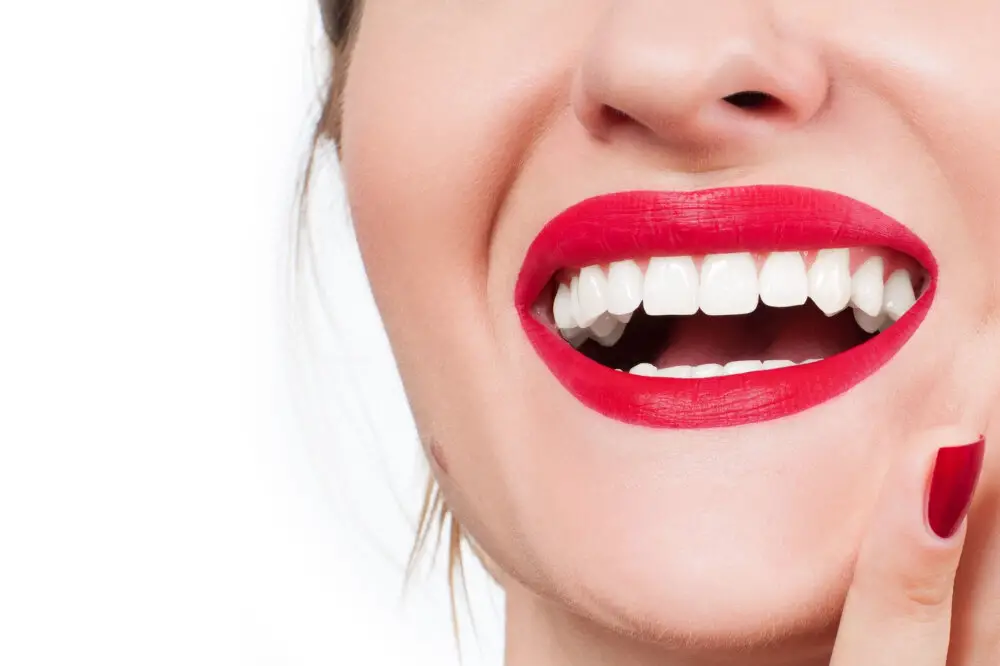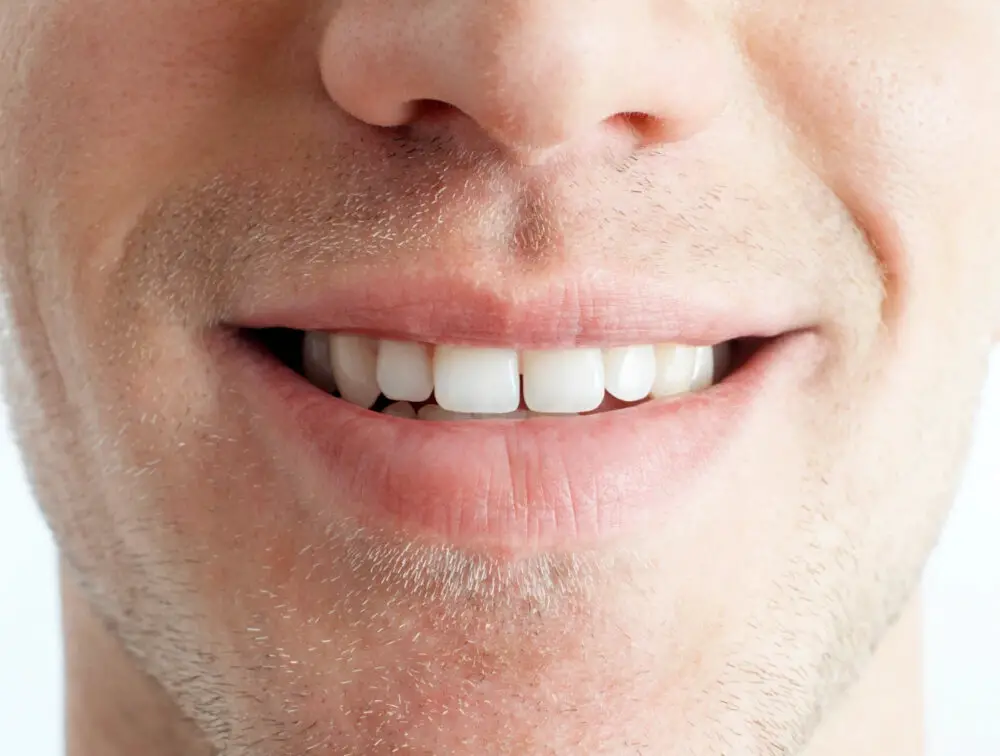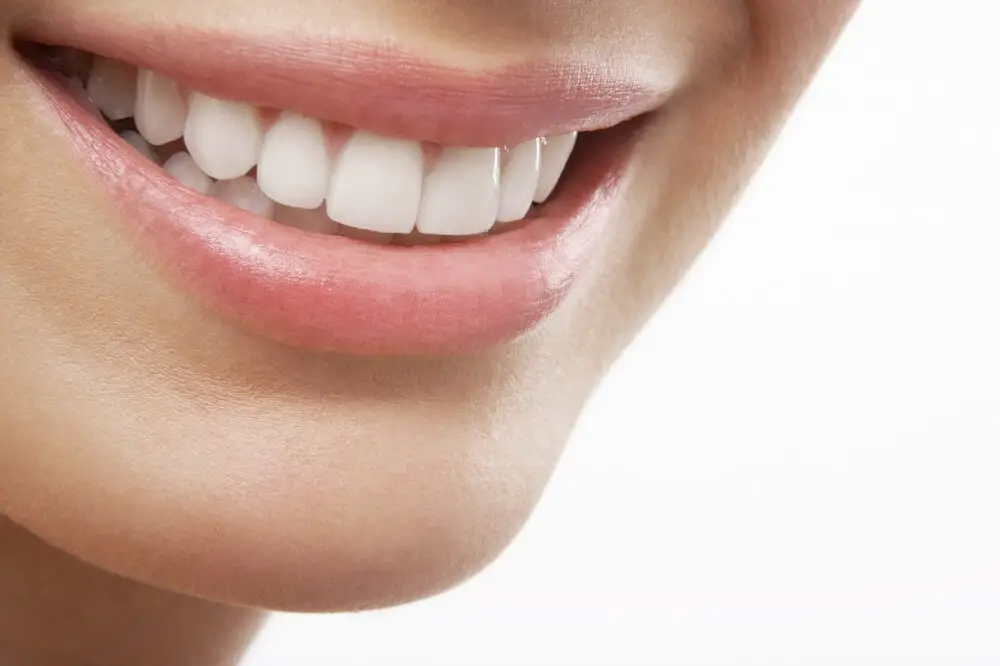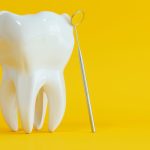Small Teeth, Big Fix: A Comprehensive Guide for Adults on How to Fix Small Teeth

Small teeth can be a source of insecurity for many adults. They may make you feel self-conscious and hesitant to smile or show your teeth in public. Fortunately, there are several ways to fix small teeth and achieve a beautiful, confident smile. This comprehensive guide will explore the various procedures and treatments available to adults with small teeth, including cosmetic dentistry, orthodontics, and restorative dentistry. Cosmetic dentistry offers a range of solutions for small teeth, including veneers, bonding, and teeth whitening. Veneers are thin, custom-made shells that are placed over the front of the teeth to improve their appearance. Bonding involves applying a tooth-colored resin to the teeth to reshape and improve their overall look. Teeth whitening is a non-invasive procedure that can brighten the teeth and make them appear larger and more prominent. Orthodontic treatments such as braces and clear aligners can also be effective in fixing small teeth, as they can straighten the teeth and correct any misalignments. Restorative dentistry options such as dental implants, bridges, and crowns can be used to replace missing or damaged teeth, which can help to improve the overall size and appearance of the teeth.
Small teeth can be a cosmetic concern for many individuals, leading to a lack of confidence and self-esteem. It can also cause functional issues such as difficulty chewing and speaking. The causes of small teeth can vary, including genetics, improper dental care, and dental trauma. The good news is that there are several options available for fixing small teeth, including veneers, bonding, and orthodontic treatment. Seeking the advice of a dental professional can help determine the best course of action to achieve a beautiful and functional smile.
Small teeth can be a source of insecurity for many adults, affecting their self-esteem and confidence. However, addressing small teeth is not only about aesthetics, but it can also have functional benefits. Small teeth can cause issues with bite alignment, leading to jaw pain, headaches, and even difficulty chewing. Additionally, small teeth can lead to gum recession, which can result in tooth sensitivity and even tooth loss. By addressing small teeth as an adult, individuals can improve their oral health, prevent further damage, and boost their self-confidence. With advancements in cosmetic dentistry, there are now various treatment options available to fix small teeth, making it easier than ever to achieve a beautiful, healthy smile.
Causes of Small Teeth

Small teeth are a common dental condition that affects both children and adults. The causes of small teeth can be due to various factors, including genetics, poor nutrition, and dental trauma. Genetics play a significant role in determining the size of your teeth. If your parents have small teeth, then it is likely that you will have small teeth as well. Similarly, poor nutrition during childhood can also affect the development of teeth, leading to smaller teeth. Nutrients like calcium, vitamin D, and phosphorus are essential for healthy teeth, and a lack of these nutrients can cause teeth to be smaller than normal. Dental trauma, such as a chipped or fractured tooth, can also lead to small teeth. The trauma can damage the growth of the tooth, causing it to be smaller than the others. Other factors that can cause small teeth include hormonal imbalances, certain medications, and medical conditions. Hormonal imbalances, such as those that occur during puberty, can affect the development of teeth, leading to smaller or misshapen teeth. Certain medications, such as chemotherapy drugs, can also affect the growth and development of teeth, leading to smaller teeth. Medical conditions, such as amelogenesis imperfecta or dentinogenesis imperfecta, can also cause teeth to be smaller than normal. These conditions affect the enamel or dentin of the teeth, making them weaker and smaller. If you are concerned about the size of your teeth, it is important to consult with a dental professional to determine the underlying cause and develop a treatment plan.
Genetics plays a significant role in determining the size and shape of our teeth. The genetic makeup of an individual influences tooth size, as well as the number of teeth that develop. Certain genetic conditions can also affect tooth development, such as amelogenesis imperfecta, which causes enamel defects and can result in smaller teeth. Additionally, genetic factors can contribute to malocclusions, or misalignments of the teeth and jaws, which can make small teeth appear even smaller. While genetics cannot be changed, there are various dental treatments available to help fix small teeth and improve their appearance and function.
Teeth grinding, also known as bruxism, is a common problem that affects many adults. This condition is characterized by the involuntary clenching or grinding of teeth, which can occur during sleep or while awake. Teeth grinding can cause a range of problems, including tooth wear, jaw pain, headaches, and even damage to the temporomandibular joint (TMJ). In some cases, the cause of bruxism is unknown, but stress, anxiety, and sleep disorders can also contribute to this condition. If you suspect that you may be grinding your teeth, it is important to seek treatment from a dentist or healthcare professional to prevent further damage and alleviate any associated symptoms.
Wear and tear is a natural process that occurs in every part of the body, including teeth. Factors such as age, diet, oral hygiene, and lifestyle habits can contribute to the wear and tear of teeth. Teeth can become worn down, chipped, or cracked over time, affecting their appearance, function, and overall health. Fortunately, there are many options available to fix small teeth caused by wear and tear, including dental bonding, veneers, and crowns. It’s important to address any dental issues caused by wear and tear promptly, as they can lead to more serious problems down the line. Regular dental check-ups and a good oral hygiene routine are key to maintaining healthy teeth and preventing wear and tear.
Poor dental hygiene can lead to a myriad of dental problems, including small teeth. Neglecting to brush and floss regularly can cause plaque buildup, which can erode the enamel of the teeth and make them appear smaller. Additionally, consuming sugary and acidic foods and drinks can contribute to dental decay, which can also affect the size and shape of the teeth. It is important to maintain good dental hygiene habits, such as brushing twice a day, flossing daily, and visiting the dentist regularly, in order to prevent these issues and maintain a healthy, beautiful smile.
Treatment Options

When it comes to treating small teeth, there are several options available depending on the severity of the issue. One of the most common treatments is dental bonding, which involves applying a tooth-colored resin to the surface of the teeth to improve their appearance. Bonding is a relatively quick and painless procedure that can be completed in a single visit to the dentist’s office. It is also a cost-effective solution for minor cosmetic issues such as small gaps, chips, or discoloration. However, bonding is not a permanent solution and may need to be replaced after several years. Another treatment option for small teeth is porcelain veneers, which are thin shells of porcelain that are custom-made to fit over the front surface of the teeth. Veneers can correct a range of cosmetic issues including small teeth, gaps, and discoloration. They are a more permanent solution than bonding, lasting up to 15 years with proper care. However, veneers are more expensive than bonding and require more preparation of the natural teeth before placement. It is important to consult with a cosmetic dentist to determine which treatment option is best for your individual needs and goals.
Orthodontics is a specialized field of dentistry that focuses on correcting misaligned teeth and jaws. Small teeth can often be a result of overcrowding, which can cause teeth to shift and become crooked. Orthodontic treatment can help to straighten teeth, close gaps, and improve bite alignment. There are several options available for adults seeking orthodontic treatment, including traditional braces, clear aligners, and lingual braces. Orthodontic treatment can not only improve the appearance of small teeth, but it can also improve overall dental health by making it easier to clean teeth and reducing the risk of gum disease and tooth decay.
Dental bonding is a cosmetic dental procedure that can effectively fix small teeth. It involves the application of a tooth-colored resin material to the tooth surface, which is then bonded and sculpted to improve the appearance of the tooth. Dental bonding is a relatively quick and painless procedure that can address a range of dental issues, including small chips, cracks, and gaps. It is also a great option for those looking to improve the shape or color of their teeth. While dental bonding is a temporary solution, it can last for several years with proper care and maintenance. Overall, dental bonding is a versatile and affordable cosmetic dental treatment that can provide significant improvements to the appearance of small teeth.
Veneers are a popular cosmetic dental solution designed to cover the front surface of a tooth. They are typically made of porcelain or composite resin and can be used to correct a variety of cosmetic dental issues, including small teeth. Veneers are custom-made to match the color and shape of your natural teeth and are bonded to the front surface of your teeth to improve their appearance. They can be used to cover up stains, chips, cracks, and gaps between teeth. Veneers can also be used to lengthen small teeth, creating a more symmetrical and proportionate smile. They are a minimally invasive and long-lasting solution that can dramatically improve your smile and boost your confidence.
Crowns are a popular dental restoration option used to repair damaged or decayed teeth. They are custom-made tooth-shaped caps that cover the entire visible portion of the tooth and provide a protective layer. Crowns can be made of various materials such as porcelain, metal, or a combination of both. They offer a durable and long-lasting solution for small teeth that are chipped, cracked, or severely decayed. Besides, crowns can also restore the shape, size, and functionality of a tooth while enhancing its overall appearance. With proper care, crowns can last for many years, making them a valuable investment in your dental health.
Dental implants are a popular and effective solution for people with small teeth or missing teeth. Implants are titanium screws that are placed into the jawbone to replace the root of a missing tooth. Once the implant is securely in place, a prosthetic tooth is attached to the top, which looks and functions just like a natural tooth. Implants offer a long-lasting and durable solution for small teeth, and they can also help to prevent bone loss in the jaw that can occur when teeth are missing. While the process of getting dental implants can take several months, the end result is a beautiful, natural-looking smile that can last a lifetime with proper care and maintenance.
Choosing the Right Treatment Option

When it comes to fixing small teeth, there are several treatment options available, but choosing the right one can feel overwhelming. It is important to consider your individual needs and preferences, as well as the severity of your dental issue. Some common treatment options include dental bonding, porcelain veneers, and orthodontics. Dental bonding is a popular and affordable option for fixing small teeth. This procedure involves applying a tooth-colored resin to the surface of the tooth and shaping it to create a more natural appearance. Bonding is a quick and painless procedure that can be completed in just one visit to the dentist. Porcelain veneers are another option for fixing small teeth. Veneers are thin shells that are custom-made to fit over the front of your teeth, and can provide a more dramatic improvement in the appearance of your smile. Orthodontic treatment, such as braces or clear aligners, can also be used to correct small teeth by realigning the teeth and improving their overall appearance. It is important to consult with your dentist or orthodontist to determine which treatment option is best for you.
When it comes to fixing small teeth, there are several treatment options to consider. One option is dental bonding, which uses a tooth-colored resin to cover and reshape small teeth. Another option is porcelain veneers, which are custom-made shells that cover the front of teeth to improve their shape and size. Orthodontic treatment, such as braces or Invisalign, may also be recommended to realign teeth and improve their appearance. It is important to consider the cost, longevity, and maintenance requirements of each treatment option before making a decision. Additionally, consulting with a dentist or orthodontist can provide valuable insight into which option may be the best fit for individual needs and goals.
The cost of fixing small teeth can vary depending on the extent of the treatment needed. In general, cosmetic dental procedures can be quite expensive, ranging from a few hundred to several thousand dollars. However, it is important to remember that the cost of treatment is often reflective of the quality of care received. Additionally, some insurance plans may cover part or all of the cost of dental procedures. Patients should discuss their options with their dentist and insurance provider to determine the most cost-effective approach to fixing their small teeth. Ultimately, investing in dental treatment can lead to improved oral health and a more confident smile.
Timeframe is an important consideration when it comes to fixing small teeth as it can impact the overall success of the treatment. The duration of the treatment will depend on the severity of the issue and the chosen method of correction. Some treatments like veneers and bonding can be completed in a single visit, while others like orthodontics may take several months or even years to achieve the desired results. It is important to discuss the expected timeframe with your dentist or orthodontist to ensure that you are fully aware of the commitment required for the treatment and to manage your expectations accordingly. Additionally, it is important to comply with all instructions given by the practitioner to ensure that the treatment stays on track and is completed within the expected timeframe.
Small teeth can have long-term effects on an individual’s overall oral health. Due to the reduced surface area of small teeth, they are more prone to cavities, decay, and sensitivity. In addition, small teeth can also cause bite misalignment, which can lead to jaw pain, headaches, and even speech impediments. If left untreated, these long-term effects can negatively impact an individual’s quality of life, making it difficult to eat, speak, and maintain a healthy smile. However, there are various treatment options available for small teeth, including veneers, bonding, and orthodontic treatment, which can help correct these issues and improve overall oral health.
Prevention and Maintenance

Prevention and maintenance are crucial aspects of dental health for people with small teeth. One of the primary ways to prevent small teeth is to maintain good oral hygiene by brushing and flossing regularly. This helps to remove plaque and bacteria that can cause tooth decay and gum disease, which can lead to smaller teeth. Additionally, avoiding sugary and acidic foods and drinks can help prevent erosion and decay, which can also lead to smaller teeth. Regular dental checkups are also important for prevention and early detection of any dental issues that may be contributing to small teeth. Maintenance is also essential for people with small teeth who have had corrective treatments such as bonding, veneers, or orthodontics. Proper maintenance of these treatments helps to ensure their longevity and effectiveness in maintaining the size and shape of the teeth. This includes regular dental checkups, daily brushing and flossing, and avoiding habits such as nail-biting or chewing on hard objects that can damage the teeth. Additionally, people with small teeth may benefit from using fluoride toothpaste or mouthwash to help strengthen the enamel and prevent decay. By practicing good prevention and maintenance habits, people with small teeth can maintain optimal dental health and prevent further issues.
Proper dental hygiene is essential for maintaining healthy teeth and gums, especially for those who are looking to fix small teeth. Brushing your teeth twice a day with fluoride toothpaste and flossing daily can help remove plaque and prevent cavities. It’s also important to visit the dentist regularly for cleanings and checkups. A balanced diet that is low in sugary and acidic foods can also help prevent tooth decay and enamel erosion. Additionally, avoiding habits such as smoking and excessive alcohol consumption can reduce the risk of oral cancer and other dental problems. By taking care of your teeth and gums through proper dental hygiene, you can ensure a healthy and beautiful smile for years to come.
Regular dental checkups are a crucial aspect of maintaining good oral health, especially when it comes to fixing small teeth. These checkups allow for early detection and prevention of potential dental issues, such as cavities or gum disease, that can worsen if left untreated. During these appointments, a dentist can also examine the size and shape of teeth, identifying any abnormalities that may require corrective treatment. Additionally, regular dental checkups provide an opportunity for individuals to discuss any concerns they have about their teeth and receive advice on how to improve their oral hygiene routine. By prioritizing regular dental checkups, individuals can take proactive steps towards achieving a healthy and confident smile.
Teeth grinding, also known as bruxism, can cause damage to your teeth, jaw, and overall oral health. Fortunately, there are lifestyle changes you can make to prevent teeth grinding. First, reduce your stress levels through exercise, meditation, or therapy. Stress is a common trigger for bruxism, so finding ways to relax can be beneficial. Additionally, avoid consuming caffeine, alcohol, and tobacco, as these substances can increase the likelihood of teeth grinding. Finally, establish a regular sleep schedule and ensure you get enough rest each night. Sleep disorders, such as sleep apnea, are often linked to bruxism, so addressing any underlying sleep issues may help alleviate teeth grinding. By implementing these lifestyle changes, you can protect your teeth and improve your overall oral health.
When it comes to fixing small teeth, there are several treatment options available. These include dental bonding, porcelain veneers, dental crowns, and orthodontic treatments such as braces or clear aligners. Prevention of small teeth can be achieved by maintaining good oral hygiene practices such as brushing and flossing daily, visiting the dentist regularly, and avoiding sugary and acidic foods and drinks. Additionally, wearing a mouthguard during sports activities can help prevent dental trauma that may lead to small teeth. By taking the necessary steps to prevent small teeth and seeking the appropriate treatment options, individuals can achieve a more confident and healthy smile.
If you’re feeling self-conscious about your small teeth, seeking professional advice can be a game-changer. Many people assume that small teeth are simply a cosmetic issue, but they can actually cause functional problems as well. A dentist or orthodontist can evaluate your teeth and recommend a range of treatment options, from veneers and bonding to braces or Invisalign. It’s important to take action sooner rather than later, as small teeth can lead to bite problems, jaw pain, and even tooth decay. With the right treatment plan and a little patience, you can achieve a smile that you’re proud to show off.
Conclusion

In conclusion, having small teeth can be a source of insecurity for many adults. However, with the right approach and guidance, fixing small teeth is achievable. This comprehensive guide offers a range of options, from cosmetic dentistry to orthodontic treatments, to help adults achieve the smile they deserve. It is important to remember that each individual’s case is unique, and consulting with a dental professional is crucial in determining the best course of action. With patience, persistence, and the right tools, anyone can transform their small teeth into a beautiful, confident smile.




